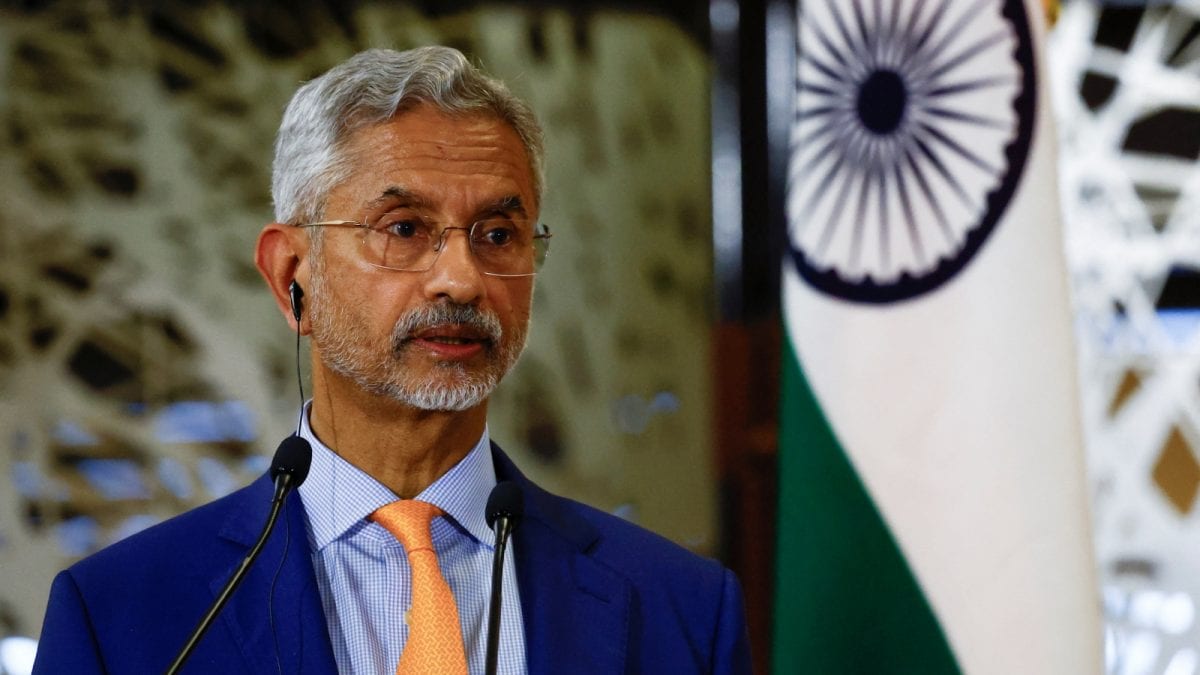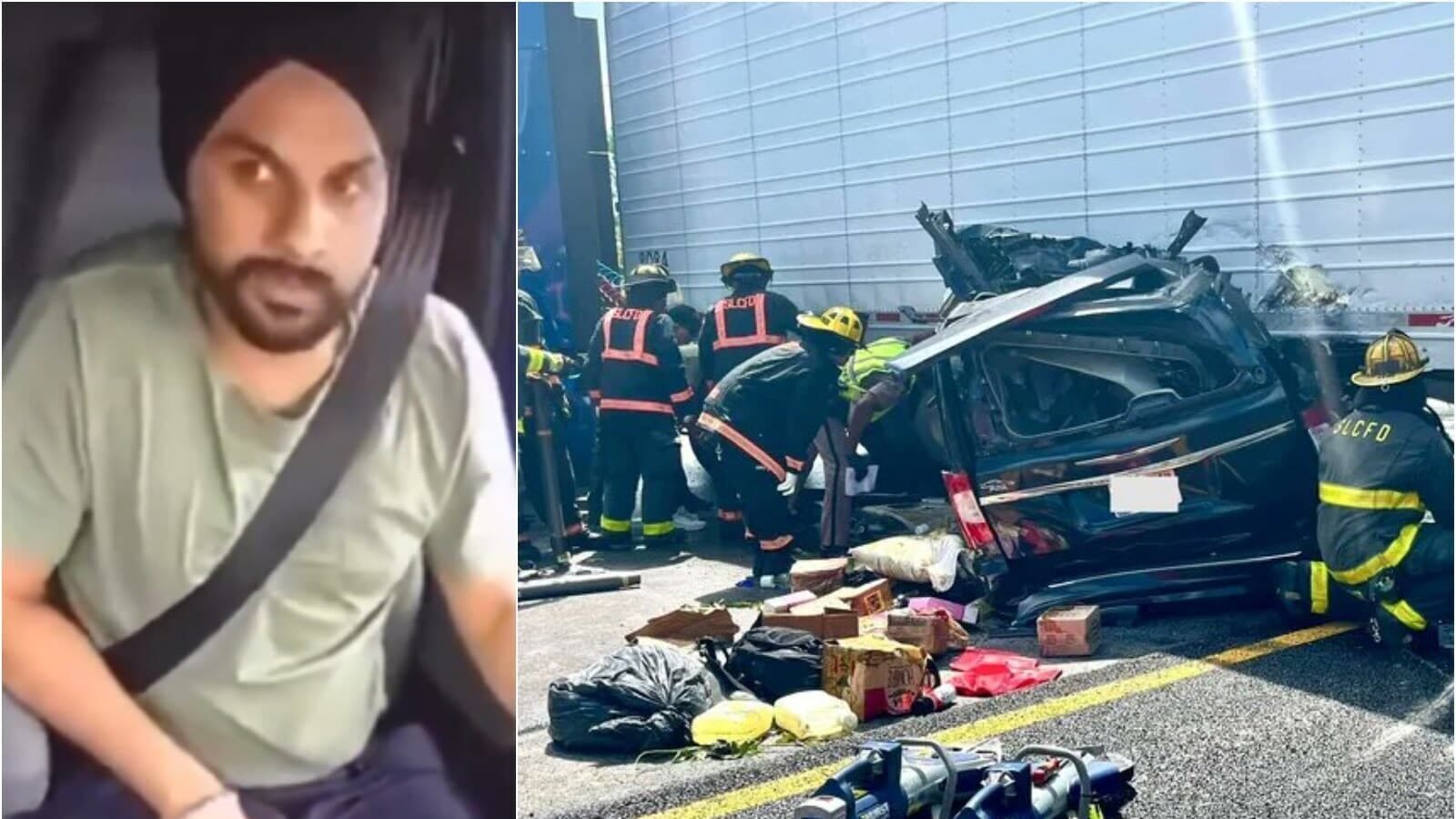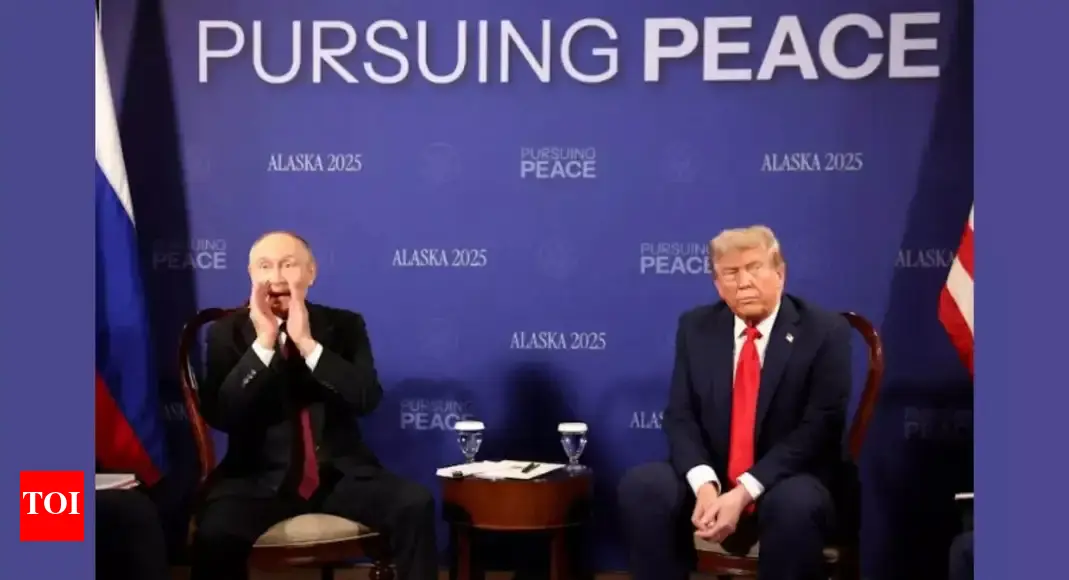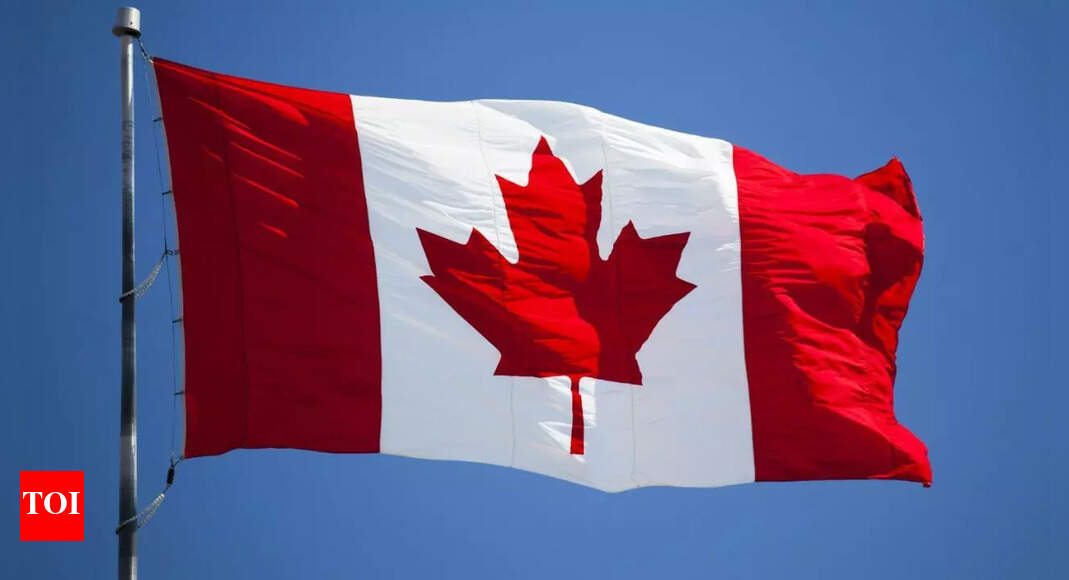Last Updated:
Highlighting the flaws in Western diplomacy, Jaishankar said peace talks without Russia are futile and reaffirmed India’s stand that only dialogue can end the war

Jaishankar said that just as Europe is deeply invested in Ukraine, countries like India may be more sensitive to issues in their own neighbourhood. (Reuters Image)
As the Ukraine conflict moves into its fourth year, External Affairs Minister S Jaishankar has questioned the logic of Western efforts to broker peace while excluding one of the main parties to the war. Speaking to Denmark’s TV2 Channel during his recent visit to Europe, Jaishankar asked, “What’s the point of gathering everybody else and not having Russia in the room?” — calling such diplomacy ineffective and unrealistic.
Pointing to what he called inconsistencies in Europe’s own approach, Jaishankar noted that while the West demands others cut ties with Moscow, European nations themselves continue to import Russian energy. “Europe continues to buy energy as well,” he said, pushing back against criticism of India’s ongoing trade with Russia.
Reiterating India’s consistent stance on the war, Jaishankar said, “From the very start, we’ve said you’re not going to get a solution to the Ukraine conflict from the battlefield. There’s got to be dialogue, there’s got to be diplomacy, and there’s got to be direct contact.”
Jaishankar also drew a broader principle from India’s own regional experience, stressing that peace is best achieved through direct negotiation between the concerned parties—not through external mediation. When asked about US President Donald Trump’s approach to India-Pakistan tensions, Jaishankar clarified that the ceasefire understanding was the result of military pressure and direct talks, not outside intervention. “We hit them very hard on one of the days, May 10, to be precise, and that is when Pakistan said we need to stop the firing and reach an understanding,” he said, referring to India’s response to the April 22 Pahalgam terror attack under Operation Sindoor. While welcoming calls for peace from global leaders, he reiterated that “if there’s going to be a solution, it has to be through dialogue between the actual parties.”
He described the Ukraine conflict as a major concern for the entire world, stressing that its ripple effects have gone far beyond Europe. “You have a conflict now into three years and going, which has impacted the entire world in different ways,” he said. Calling it a crisis with “second-order, third-order consequences,” Jaishankar noted that it had “messed up the global energy situation,” and led to serious challenges in food and fertiliser security for many countries.
When the interviewer referred to Russia as a larger country invading a smaller one, Jaishankar responded by drawing a parallel to India’s own experience with territorial violations. He noted that India has long faced breaches of sovereignty — not just historically, but as an ongoing reality. “We are one of the countries which actually have had a violation of our sovereignty. We still have a violation of our sovereignty by our neighbours—Pakistan in Kashmir region. And China,” he said.
Jaishankar’s comment served as a reminder that concerns over territorial integrity are not unique to Europe. He suggested that while Western nations have rallied around Ukraine, they have often failed to show the same urgency or solidarity when similar issues affect countries in the Global South. “Europe was very detached about it. In fact, at times, Europe was very cynical about it,” he added, referring to how the West had historically downplayed India’s security concerns.
Explaining why global reactions to conflicts like Ukraine vary, Jaishankar said it is unrealistic to expect uniformity in how nations respond. He argued that countries inevitably prioritise issues that are geographically or strategically closer to them. “Those who are closer to the problem, those whose interests are deeper, will have a much more passionate, emotional position,” he said.
He added that just as Europe is deeply invested in Ukraine, countries like India may be more sensitive to issues in their own neighbourhood — which others might not fully grasp. “I would get passionate about something close up to me, which Europe may wonder why are the Indians so agitated — or not just Indians, but somebody else as well,” he remarked.
He also underscored that diplomacy is not about imposing uniformity in response but about building shared understanding. “In diplomacy, there cannot be an expectation that other nations will have identical responses. Diplomacy is about finding common ground. Let’s agree on something basic and practical.”
- First Published:




